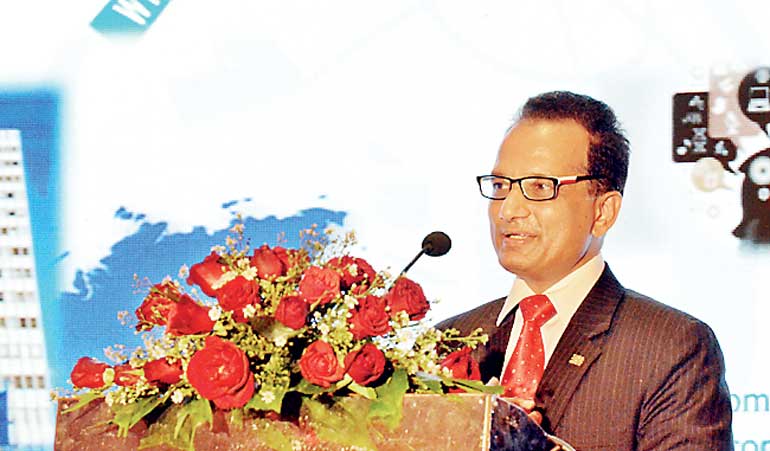Friday Feb 20, 2026
Friday Feb 20, 2026
Wednesday, 30 September 2015 00:15 - - {{hitsCtrl.values.hits}}

In the context of a looming 48% increase in cybercrime activity recorded between 2013 and 2014, and the ranking of cybercrimes among the top three threats facing contemporary companies, Sri Lanka is ranked at a respectable 9th place on the Global Cyber Security index by International Telecommunication Union (ITU).
The index aims to measure the level of commitment of each nation in cyber security in five main areas: Legal Measures, Technical Measures, Organisational Measures, Capacity Building, National and International Cooperation.
In his keynote speech at the Cyber Security Summit yesterday ITU Asia Pacific Senior Advisor Sameer Sharma revealed that Sri Lanka’s rankings were said to be reasonably high ahead of Thailand, Bangladesh and Philippines but placed behind regional giants such as Malaysia, Australia and Singapore.
ITU also does a Cyberwellness Profiles which exemplify those research efforts and illustrates activities undertaken in a broad variety of national sectors: from legislation, policy and strategy; to responsible institutions and certified public sector professionals; including awareness building and educational exercises, among many other undertakings.
“Cybersecurity requires a holistic approach in order to be truly effective, and consequently, input from various disciplines and industries is critical for the realisation of a comprehensive vision,” Sharma said.
Sharma noted that while it would never be possible to completely remove all risks, drawing together effective policies and practices, infrastructure and technology, awareness and communication can do a great deal to help.
International cooperation, based on a multi-stakeholder approach and the belief that every organisation – whether online or mobile, educator or legislator, technical expert or industry body – has something to contribute, he said, adding that human and institutional capacity building were critical to understand and take reactive, proactive response to cyber threats.
It was pointed out that by working together with ITU and its partners, critical international collaboration could be achieved to make the internet safe and secure for all including future generations.
In his presentation Sharma detailed ITU initiatives in building security and trust in cyberspace. Additionally, ITU’s initiatives in Sri Lanka were also shared with Cyber Security Summit participants. A Cyber Drill is planned for 2016 in partnership with ICTA. (SI)